Popular Myths About CBD Debunked
Summarize
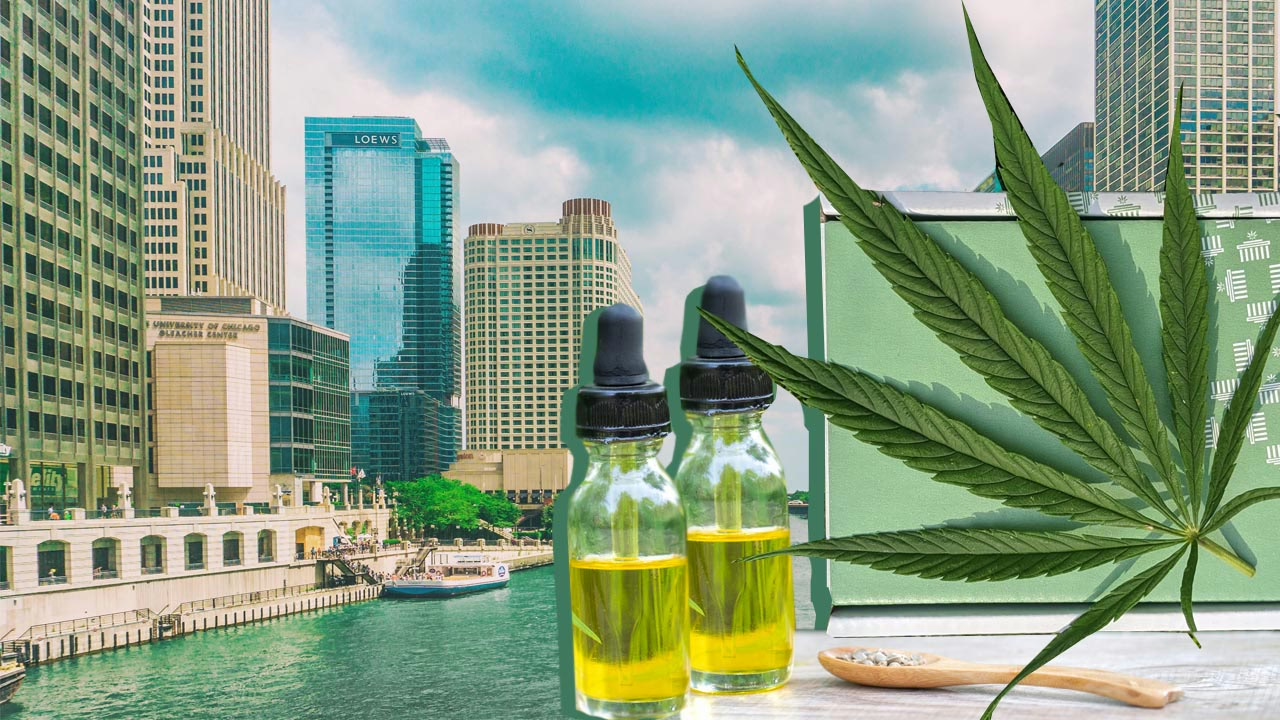
Scientists have shown interest in the medicinal application of the cannabinoids since 1940, but due to cannabis prohibition, decades passed before CBD was available to the public. Because of CBD’s close relationship to THC, the cannabinoid that delivers a high, there has been a plethora of misinformation and myths regarding CBD.
Many of the misconceptions around CBD are due to prohibition, but also because of the free flow of information online. CBD companies have degraded the trust of the public by making ridiculous and false medical claims.
In this article, we are going to clear up the top CBD misconceptions. Providing a reliable source of information to our readers is our number one priority. Being educated about CBD is crucial in this new and unregulated market.
#1 CBD Myth: All CBD is the Same
Fact: While CBD is a chemical compound derived from cannabis containing 21 carbon, 30 hydrogen, and 2 oxygen atoms, the process, quality, and type of products are far from the same.
CBD is extracted from the plant and activated through a process called decarboxylation. The methods used by manufacturing facilities require heat and pressure applied to the plant matter. Using CO2 to extract the CBD is the industry standard because it is the safest, cleanest, and most efficient method. Some companies use ethanol to extract CBD, but when done incorrectly, the CBD could contain harmful chemicals.
During the manufacturing process, different types of CBD extract can be created. Below are the 3 main types of CBD:
- Full-Spectrum – an extract containing all the cannabinoids and terpenes from the original hemp plant. Full-spectrum CBD products contain small amounts of THC.
- Broad-Spectrum – also contains an array of cannabinoids and terpenes but without any THC.
- Isolate – CBD is completely separated from the plant, with no other cannabinoids or other plant compounds.
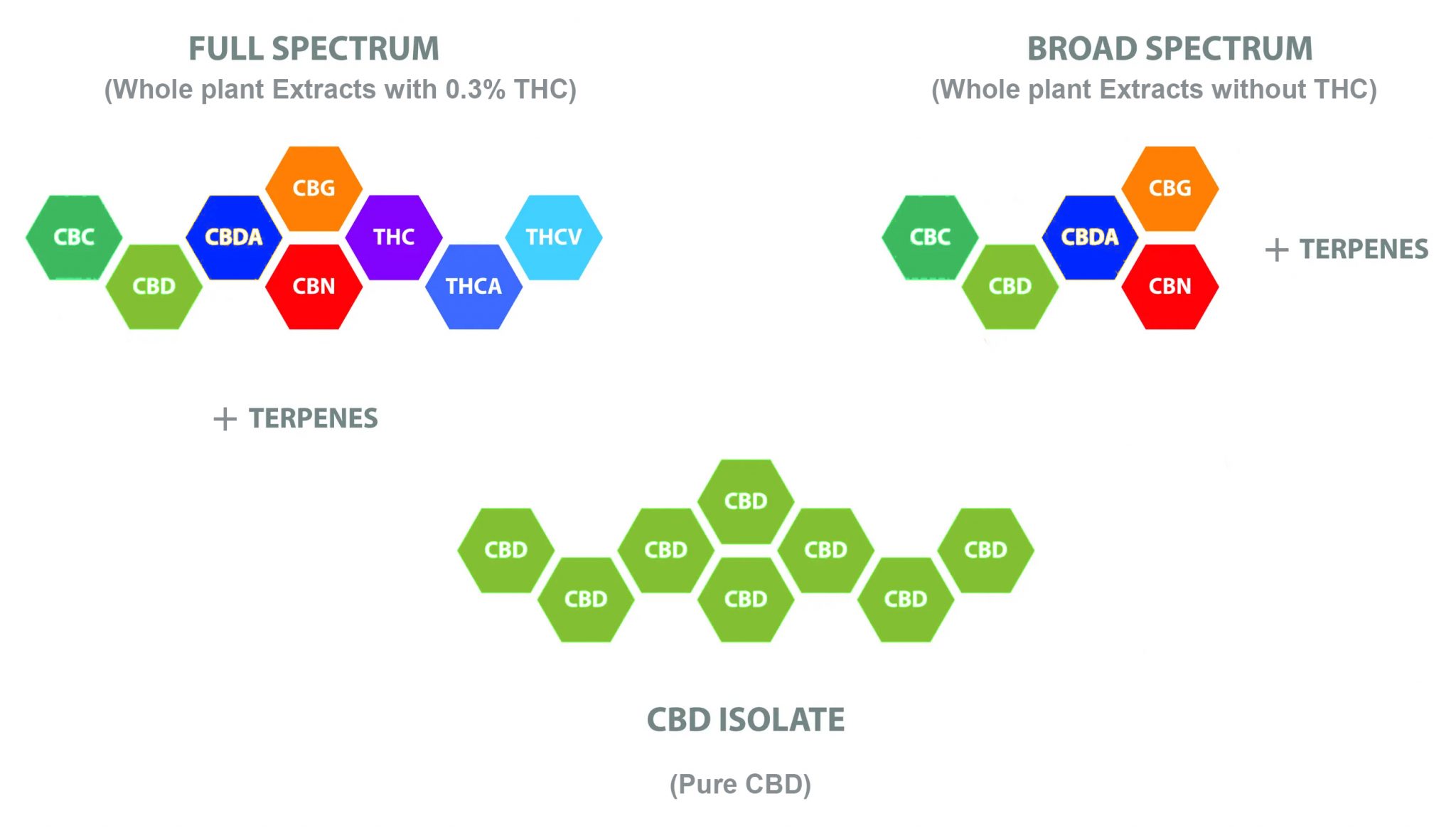
#2 CBD Myth: CBD oil, Hemp Oil, and Marijuana are all the Same
Fact: The 2018 Farm Bill categorizes hemp as cannabis containing 0.3% THC or less. Marijuana is any product derived from cannabis with a THC potency level above 0.3%.
Hemp oil or hemp seed oil doesn’t contain any CBD or THC. Hemp seeds are packed with vitamins and nutrients but don’t contain any cannabinoids.
CBD oil contains one of the types of CBD above, plus carrier oil. Some companies add terpenes, flavoring, vitamins, or other additives to increase the quality of the product.
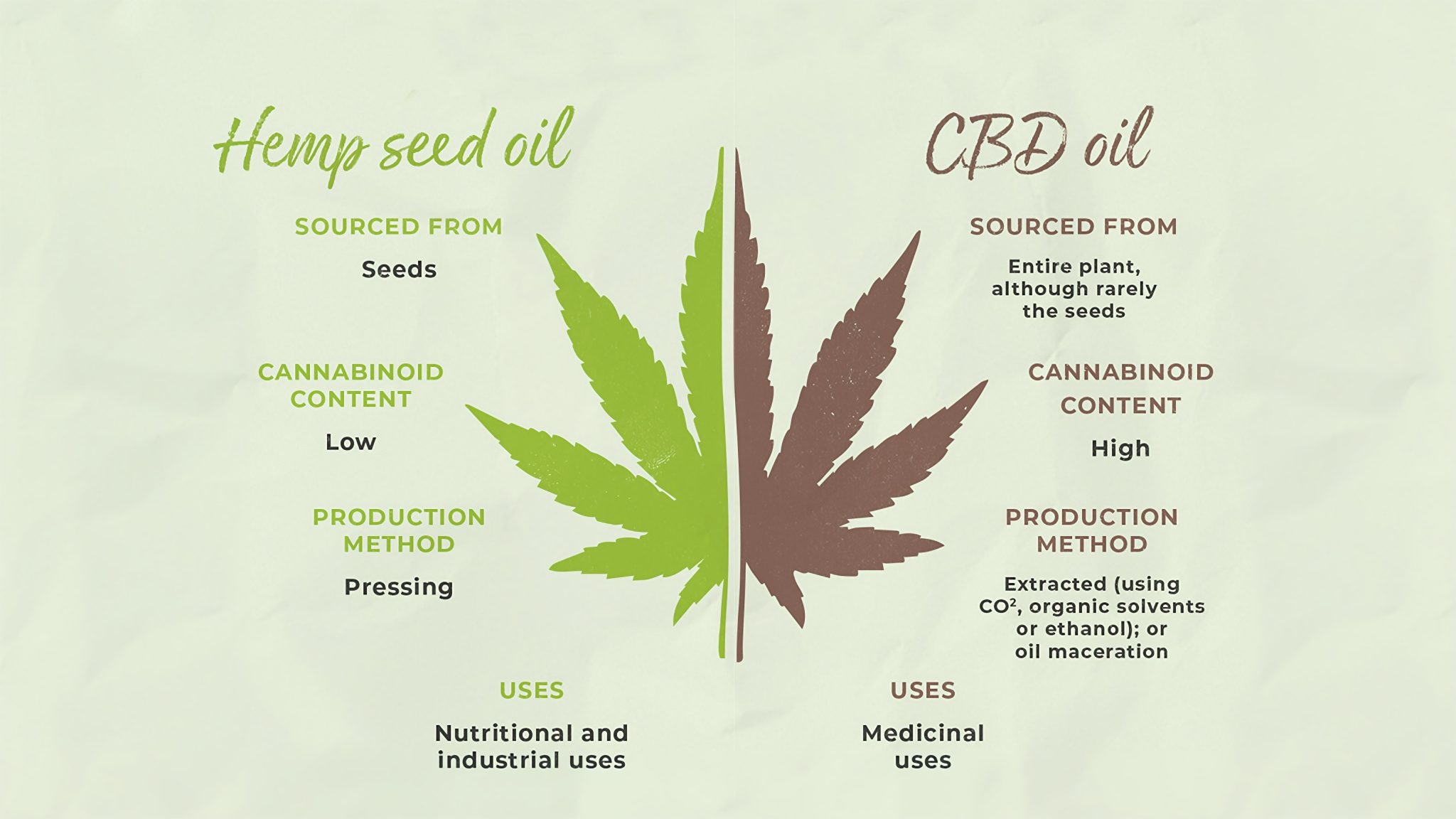
#3 CBD Myth: CBD is addictive
Fact: According to the World Health Organization, “in humans, CBD exhibits no effects indicative of any abuse or dependence potential. To date, there is no evidence of public health-related problems associated with the use of pure CBD.”
#4 CBD Myth: The Bigger the Dose, the Better
Fact: We lack sufficient data to determine whether this claim is valid. For all types of CBD, the bigger the dose, the better the claim doesn’t seem to be true.
Cannabis experts believe that CBD alone (isolate) has a bell-shaped dose-response, which means that taking too little or too much CBD will lower the potential for benefits.
In 2015, cannabis researchers in Jerusalem found this was the case in treating irritated rat paws. The isolate CBD extract did reduce the irritation in the rats, but the results were decreased at low and high doses. A full plant extract containing multiple cannabinoids, including THC, performed better as the dose increased.
The verdict is still out concerning many variables, including human application, other potential medicinal benefits, and broad-spectrum extracts.
#5 CBD Myth: There’s No Scientific Proof That CBD Works For Any Health Conditions
Fact: Numerous scientific, peer-reviewed studies produced encouraging results for a wide variety of medical conditions in both human and animal models. The problem is that we don’t have sufficient sample sizes.
In 2018, the FDA approved the drug Epidiolex. The drug’s active ingredient is CBD. The FDA requires rigorous trials and evidence to approve new drugs.
Of all the myths surrounding CBD, this one is the most complicated. Research regarding CBD has been suppressed by cannabis prohibition, and CBD companies aren’t supposed to make medical claims. Just because we don’t have the thousands of human test results required for the FDA’s approval doesn’t mean that there isn’t any proof that CBD works.
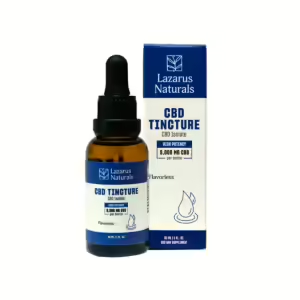
#6 CBD Myth: CBD Does Not Have Side Effects
Fact: For most people this is true, however, CBD users have reported side effects.
There are reports that ‘though it’s often well-tolerated, CBD can cause side effects, such as dry mouth, diarrhea, reduced appetite, drowsiness, and fatigue. CBD can also interact with other medications you’re taking, such as blood thinners.
#7 CBD Myth: CBD Works Immediately
Fact: CBD takes time and consistency to see results.
THC gives users an almost instantaneous feeling of euphoria. Users new to CBD expect the same effects when taking CBD. This is a common misconception. To benefit from CBD, you must take it correctly and consistently over an extended period of time. We recommend taking CBD for at least 2 weeks before determining if CBD is delivering the benefits you are hoping for.
Taking CBD one time will not result in instant results. This can be discouraging for new users, but please be patient. Thousands of people are seeing excellent results from CBD products.
#8 CBD Myth: CBD is Illegal
Fact: CBD extracted from the hemp plant (a type of cannabis plant) is legal at the federal level in the U.S. per the 2018 Farm Bill. The law requires the CBD extract and any CBD product to contain less than 0.3% THC. CBD is legal in most states, but not all of them. State and local laws may vary from federal law.
#9 CBD Myth: People Interested in Only Wellness Do Not Use CBD
Fact: Although the research is ongoing, multiple surveys and studies have found that many people use CBD for general well-being. For example, a cross-sectional survey of CBD users found that 37% use CBD for general health and well-being.
#10 CBD Myth: CBD Will Show Up On a Drug Test
Fact: CBD isolate will not show up on a drug test because drug tests do not test for CBD, and it does not contain any THC. THC does show up on a drug test.
The confusion arises from the fact that full spectrum CBD extract may contain up to 0.3% THC, and broad spectrum CBD may contain a trace of THC. A trace of THC is unlikely to show up on a drug test, but it is possible. If concerned about a drug test, there are many CBD isolate products available today.
#11 CBD Myth: CBD is a Cure-All
Fact: There is a lot of hype surrounding CBD due to aggressive brand marketing. The Food and Drug Administration (FDA) does not allow CBD brands to make health claims about the ability of CBD to cure, reduce, treat, or prevent diseases or to affect the body’s functioning. That is because CBD is not a drug, as defined by the FDA.
Any claims that CBD can “cure” diseases, end pain, act as a cure-all, etc., are false advertising. However, a large and growing body of scientific evidence demonstrates that CBD may offer health benefits, supporting the anecdotal evidence many times over.
#12 CBD Myth: CBD Works the Same for Everyone
Fact: Many factors impact how CBD works in the body, so it will not work the same for everyone. The factors include weight, metabolism, health conditions, genetics, method of administration, CBD potency, CBD spectrum, and type of CBD product, among others.
#13 CBD Myth: You Do Not Need to Talk to a Doctor
Fact: It’s crucial for new users to always consult a doctor before starting CBD. As discussed in CBD myth #6, CBD may interact with some medications. These interactions could either enhance the effects of some drugs or compromise their effectiveness. Some of the medications include blood thinners, antidepressants, antipsychotics, muscle relaxers, opioids, anti-epileptic drugs, etc. A doctor can also advise on the ideal CBD potency and spectrum to begin taking.
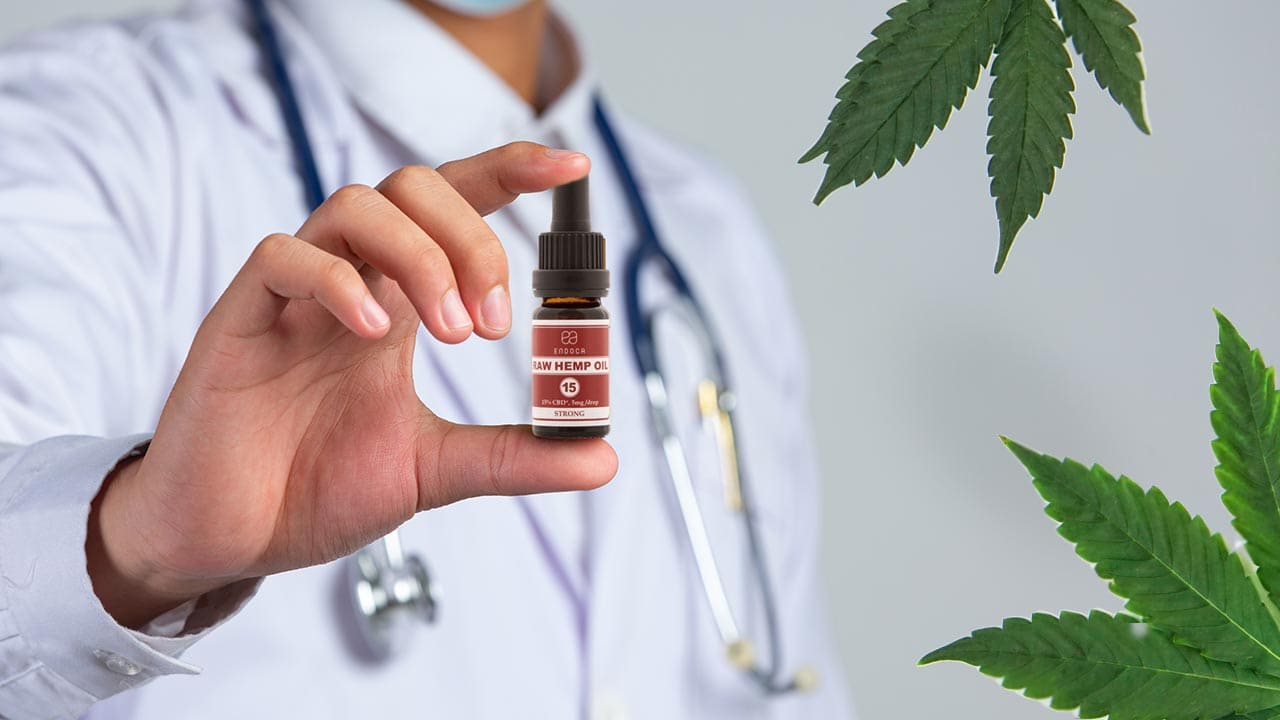
#14 CBD Myth: All CBD is Lab Tested and Has a COA
Fact: CBD is not government-regulated, so there are unsafe and mislabeled products sold by disreputable producers. A transparent, honest, and reputable CBD brand has its CBD batches tested by an independent, accredited, third-party lab, which produces a Certificate of Analysis (COA) for review.
The COA displays the results of a comprehensive analysis of the content of cannabinoids, including CBD, THC, CBG, CBN and others, as well as data on the presence of heavy metals, solvents, pesticides, and terpenes. The COA can be used to verify that the CBD product is safe and that the cannabinoid amounts on the label accurately reflect the product content. CBD is available in most stores and online, but some products may be mislabeled or contaminated.
It is up to the consumer to conduct research on CBD companies to identify those that conduct rigorous quality control procedures, provide accurate labeling, and make the Certificate of Analysis (COA) available. Making informed decisions about CBD products to purchase is important.
#15 CBD Myth: CBD Always Makes You Sleepy
Fact: CBD has different effects on people, and a lot depends on the dose taken, the CBD potency, the CBD spectrum, the product formulatio,n and the user’s metabolism.
There are CBD products available that are specifically formulated to promote relaxation, while others are designed to increase focus and alertness. The myth that CBD always makes you sleepy likely developed because people confuse CBD with the THC cannabinoid.
THC is considered a sedative that acts on the central nervous system. In large enough doses, it may temporarily act as a stimulant, but eventually the user is likely to experience sedation. However, even THC can have different effects on different people.
This is one of the reasons that people who are beginning CBD should start with a low potency product to assess the effects, and increase the potency or dosage frequency until the desired effects are experienced.
CBD Oil Fact or Fiction
Finding a reliable source of information is challenging, especially considering how new wide-scale CBD use is. Legalizing CBD and hemp-derived products was a step in the right direction, but we still have much to learn about using CBD.
We still don’t fully understand how to dose CBD for specific conditions and which type of extract is the most beneficial. The relationship between CBD and the other components of the cannabis plant is still not fully understood.
As we learn more about this incredible plant compound, we aim to provide our readers with a reliable source of information, so you aren’t misled by common myths about CBD.
Sources
- https://www.fda.gov/news-events/press-announcements/fda-approves-first-drug-comprised-active-ingredient-derived-marijuana-treat-rare-severe-forms
- https://www.fda.gov/newsevents/newsroom/pressannouncements/ucm611046.htm
- https://naturalmedicines.therapeuticresearch.com
- https://www.health.harvard.edu/blog/cannabidiol-cbd-what-we-know-and-what-we-dont-2018082414476
- https://file.scirp.org/pdf/PP_2015021016351567.pdf
- https://pmc.ncbi.nlm.nih.gov/articles/PMC7893882/
- https://www.legitscript.com/cbd-cannabis/cbd-product-labeling-regulations/
- https://pmc.ncbi.nlm.nih.gov/articles/PMC8803256/
- https://pmc.ncbi.nlm.nih.gov/articles/PMC8298645/
- https://pmc.ncbi.nlm.nih.gov/articles/PMC7723146/
Share this post


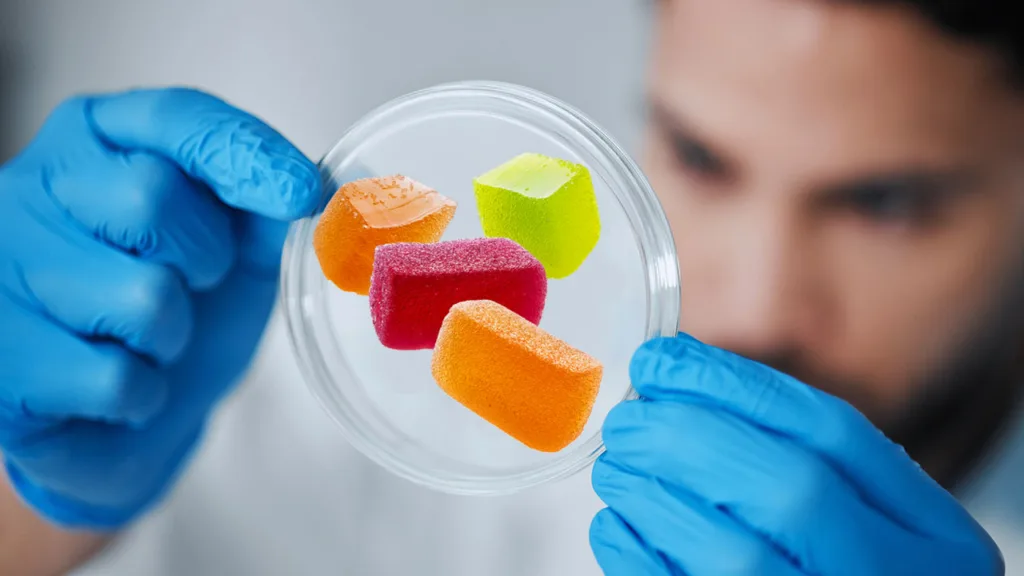
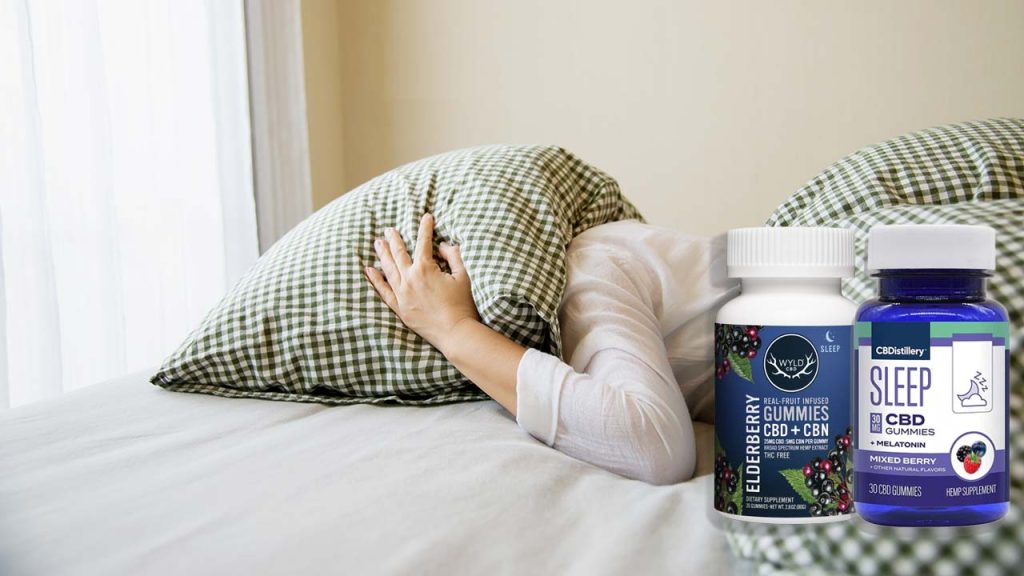
0